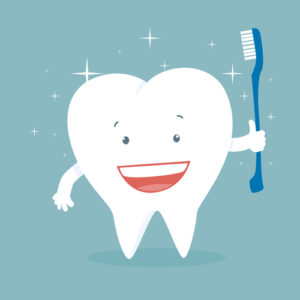Preparing Your Child for Dental X-Rays
Dental X-rays are a vital part of the dental treatment process. They allow your dentist to see what’s happening beneath the surface of your child’s teeth and gums, helping to...

A little boost in cavity prevention isn’t just for kids – who doesn’t want some help staying healthy?
Dental anxiety isn’t just a kids’ problem. Countless adults hold off on routine treatment that would benefit their oral health because they’re nervous about visiting the office. If you’re scared of the dental drill, improving your cavity prevention will help you skip invasive procedures. With fewer fillings to come, you not only avoid anxiety-inducing treatment but also protect your smile.
Fluoride treatment has long been a recommended procedure for kids, since the varnish helps protect their enamel and lower the risk of cavities. But adults reap the same rewards, and there’s no reason for them to hold back from upping their dental defenses. Dentists are embracing new preventive care models now that we know more about the progression of decay. Read on to learn why fluoride treatment is being recommended to more adults, and whether it might be right for your smile.
John Featherstone, dean of the University of California, San Francisco School of Dentistry, developed a way to measure a patient’s risk for tooth decay. By testing the levels of bacteria in the mouth and examining dietary habits, current medications, and dental history, he showed that cavities could anticipated and reversed with appropriate care. This reduces the need for drilling and makes an emphasis on oral hygiene and fluoride usage even more important. The more we learn about the microbiology of the mouth, the more effective our disease prevention can become.
For patients who frequently develop cavities, drilling and filling the decay isn’t solving the problem. It may stop the caries in question, but others will continue to develop if the bacteria in the mouth persist. Tooth decay proceeds slowly, so daily efforts to combat it are crucial.
Fluoride seeps into the enamel, drawing in the calcium and phosphate naturally present in the saliva along with it. These minerals help teeth heal themselves and resist erosion and etching. Fluoride also combats acid-producing bacteria in the mouth, and may make them less likely to stick to teeth.
While there are countless ways to get fluoride at home, using over the counter products like mouthwash and toothpaste, in-office options are more thorough. Professional fluoride treatment takes only a few minutes, and involves painting a varnish over the teeth. Dr. Baudean may also prescribe a stronger fluoride gel that you can use on your teeth at night.
If you frequently experience tooth decay, you could benefit from learning more about kicking up your preventive efforts. Get in touch today to speak with our staff about your options!